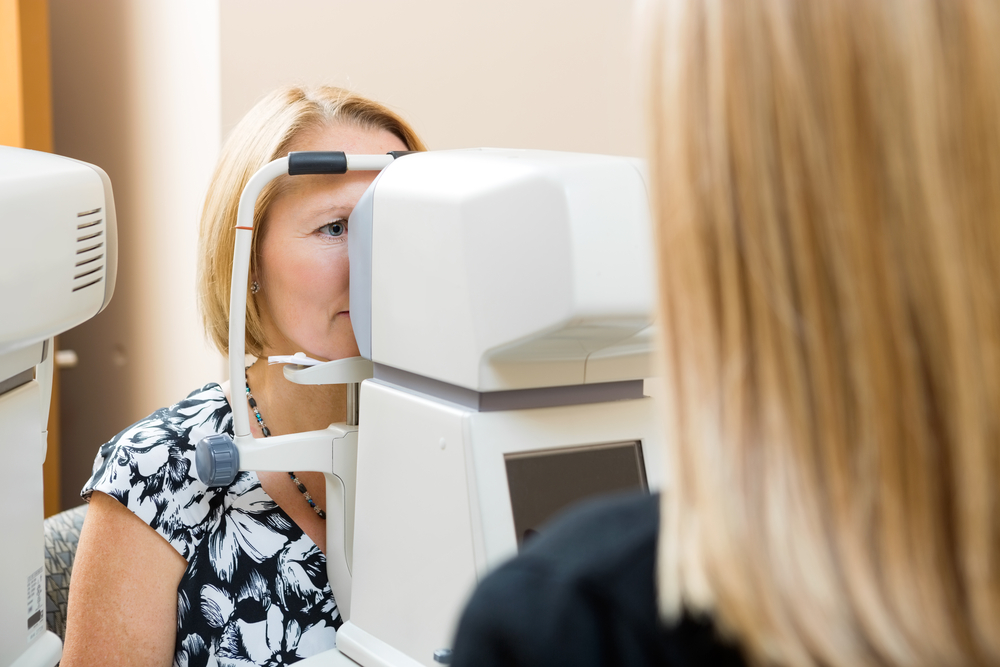We are committed to keeping our patients safe. See how we are increasing our safety measures to help fight COVID-19 here.

LASIK is also known as laser-assisted in situ keratomileusis. It is a popular eye surgical procedure. It corrects vision problems like farsightedness and nearsightedness. A comprehensive evaluation is necessary to ensure candidacy for the procedure.
Understand the Importance of Eye Exams
Eye examinations are crucial for determining your eligibility for LASIK surgery. They evaluate more factors than visual acuity. They also involve different tests that help assess your eye health. Understanding the importance of these exams is vital. It helps in laying a good foundation to ensure a successful LASIK procedure.
Schedule Your LASIK Evaluation
Scheduling a comprehensive eye examination with an ophthalmologist is crucial. It is the first step in determining the possibility of getting a LASIK procedure. The eye care professional will assess your eye health by conducting a thorough examination. They will also discuss your medical history and measure your prescription. Choosing a reputable eye care hospital or center is vital. Ensure you also follow their guidelines to help in the pre-evaluation preparations.
Prepare for the LASIK Evaluation Appointment
Preparation is vital before going for your LASIK evaluation. Doing so entails bringing a list of medications that you currently take. Remember to carry your contact lenses or eyeglasses. Your eye care professional should understand your visual needs and expectations better. They will do so by asking about your hobbies, occupation, and lifestyle. An accurate candidacy assessment happens if you are forthcoming and transparent with information.
What to Expect During LASIK Evaluation
Your eye care professional will conduct a series of comprehensive eye tests. These will assess the different aspects of your vision and eye health. Some of the tests done may include:
· Refraction test – This will determine eyeglass prescription. It will also help the specialist understand the degree of your refractive error.
· Corneal topography – This mapping technique analyzes your cornea shape in detail. It helps the surgeon identify irregularities. Such could affect the success of the LASIK procedure.
· Pachymetry – This test ensures you have enough corneal tissue to work on. It measures how thick your cornea is.
· Tear Film Evaluation – Your eye health requires a proper tear film. It is also necessary for recovering after LASIK surgery. The evaluation checks if your eyes have dryness issues. Doing so helps to address them before undergoing the procedure.
· Dilated Eye Exam - Your ophthalmologist may widen your pupils by using dilating eye drops. Doing so will help them examine the optic nerve and retina to assess your eye health.
LASIK Surgery Candidacy Determination
The ophthalmologist will determine if you are suitable for LASIK surgery. The test results will determine that. Ideal candidates ideally have:
· Stable vision for at least a year.
· Good overall health.
· Realistic expectations of the outcomes of the procedure.
Your surgeon will recommend addressing specific concerns. They may also discuss alternative options if there are any contraindications.
Post-Evaluation Consultation and Decision Making
Your eye specialist will also address questions or concerns. They will do so after discussing the evaluation results and providing detailed information about the surgery. The discussion will involve discussing the potential benefits and risks of LASIK. A post-evaluation consultation helps with decision-making. You can make an informed choice to proceed with LASIK surgery or explore alternative options to correct your vision.
For more about eye exams, visit Eyes on Butterfield at our office in Oakbrook Terrace, Illinois. Call (630) 519-6060 to book an appointment today.
Sources:
https://www.fda.gov/medical-devices/lasik/what-should-i-expect-during-and-after-surgery
https://www.mayoclinic.org/tests-procedures/lasik-eye-surgery/about/pac-20384774







